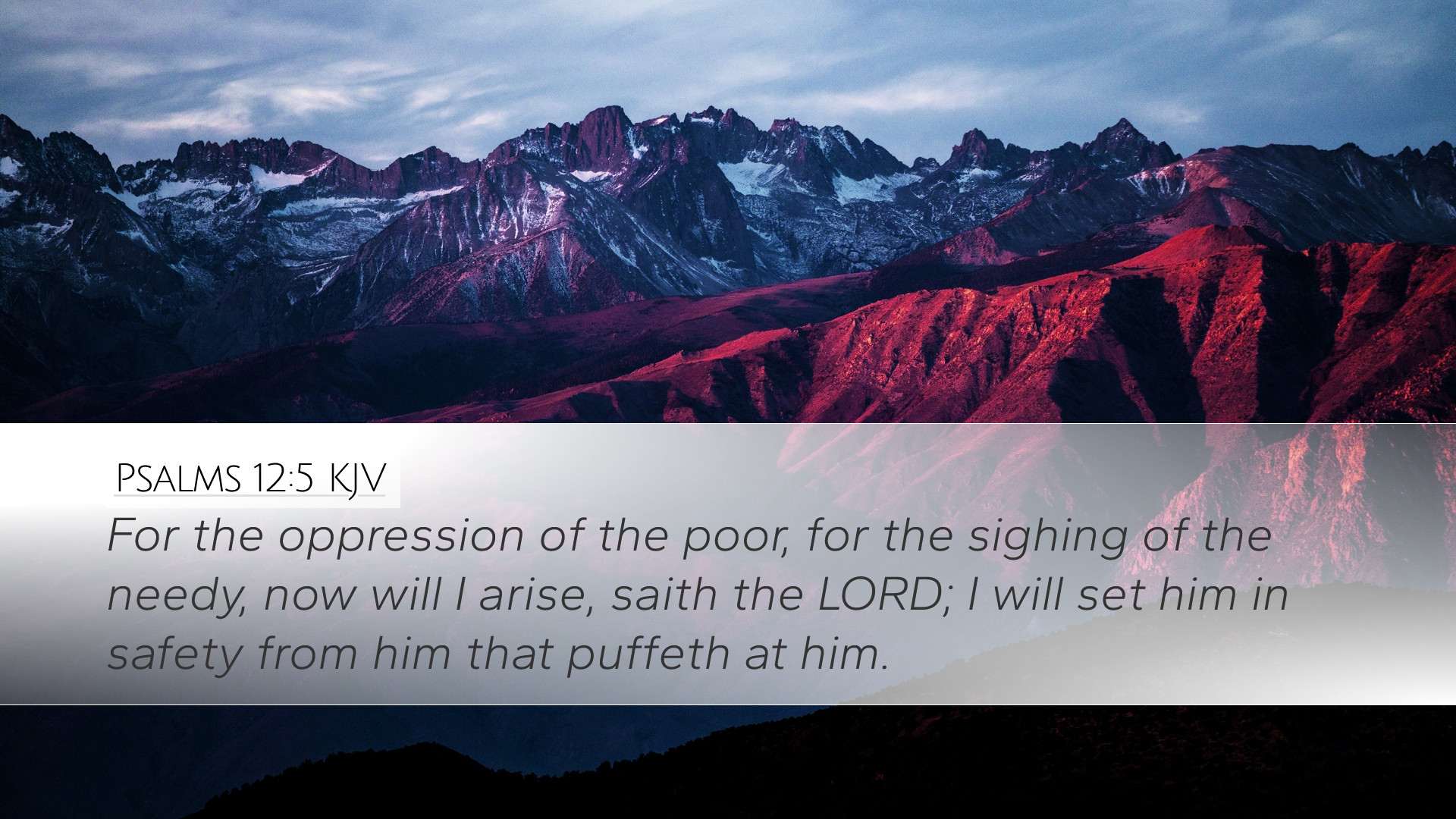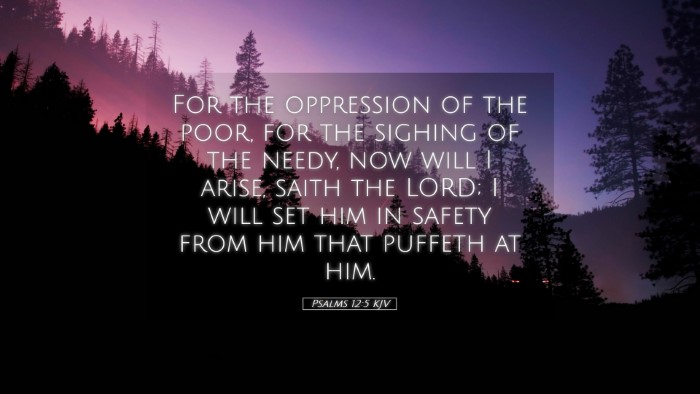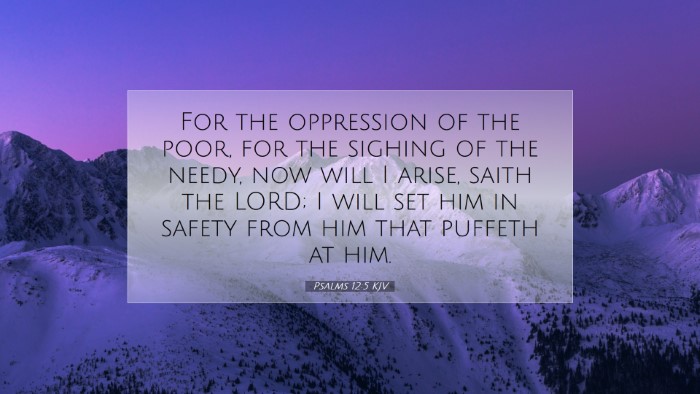Commentary on Psalms 12:5
Bible Verse: "For the oppression of the poor, for the sighing of the needy, now will I arise, saith the LORD: I will set him in safety from him that puffeth at him."
Introduction
This verse from the Psalms carries profound significance as it encapsulates the divine promise of intervention and justice in the face of human oppression. The themes of divine protection and the plight of the needy are prevalent throughout Scripture, and Psalms 12:5 stands as a testament to God’s vigilant care over those who suffer.
Overview of Commentary Insights
The insights reflected from Matthew Henry, Albert Barnes, and Adam Clarke emphasize the nature of God's character, His advocacy for the weak, and the assurance of His presence amidst adversity.
Matthew Henry's Commentary
Matthew Henry elucidates this Psalm as a cry for relief amidst a landscape dotted with deceit and danger. He remarks on the phrase "Now will I arise," indicating a timely and decisive response from God. Henry emphasizes that God does not remain passive but is actively aware of the circumstances of the poor and oppressed.
-
Divine Intervention:
Henry notes that God's rising signifies His readiness to act on behalf of the afflicted, indicating that the Lord is not indifferent to the suffering of His people.
-
Protection for the Needy:
The latter part of the verse assures that God will place the needy “in safety.” Henry highlights that this safety is not merely physical but encompasses spiritual and emotional security as well.
Albert Barnes' Commentary
Albert Barnes focuses on the specific conditions of the needy as well as the implications of God’s promise to protect them. He examines the socio-political context in which this Psalm was penned, reflecting on the profound injustices faced by the weak:
-
Oppression of the Poor:
Barnes asserts that God cannot overlook the injustices rendered against those who cannot defend themselves. The mention of the “sighing of the needy” captures the heartache and despair experienced through systemic oppression.
-
God's Assurance:
He stresses God's assurance to "set him in safety," which suggests not only immediate relief but a longer-term security that reflects God's overarching grace and sovereignty over human affairs.
Adam Clarke's Commentary
Adam Clarke provides a linguistic and contextual analysis of the Hebrew terms in this verse. His exposition emphasizes the character of God as the defender of the downtrodden:
-
The Sighing of the Needy:
Clarke interprets the "sighing of the needy" as a deep expression of longing for justice. It reflects not only physical need but also a spiritual thirst for righteousness.
-
God's Response to Oppression:
Clarke shares that the phrase "I will arise" conveys a strong intention by God to protect His people, ensuring that those who oppress the needy are ultimately confronted by divine justice.
Theological Implications
The combined insights from these commentators highlight a few critical theological implications for pastors and scholars:
-
God’s Concern for Justice:
The text reiterates that God is deeply concerned about justice, which is vital for any theological discourse focused on social justice and the role of believers in advocating for the marginalized.
-
Encouragement in Suffering:
This verse serves as a word of encouragement for believers facing oppression, reinforcing the belief that God is their refuge and advocate.
-
Active God:
Finally, it reflects the active nature of God in human history, directly intervening in response to the pleas of the oppressed, a theme echoed in both the Old and New Testaments.
Conclusion
Psalms 12:5 is a profound reminder of the nature of God as a protector and a just judge. Through the lenses of Matthew Henry, Albert Barnes, and Adam Clarke, we see a cohesive and robust theological reflection that reminds the faithful of God's commitment to justice amidst the injustices of the world. It calls upon pastors and theologians to engage with these themes actively, championing the causes of the oppressed in their ministries.


